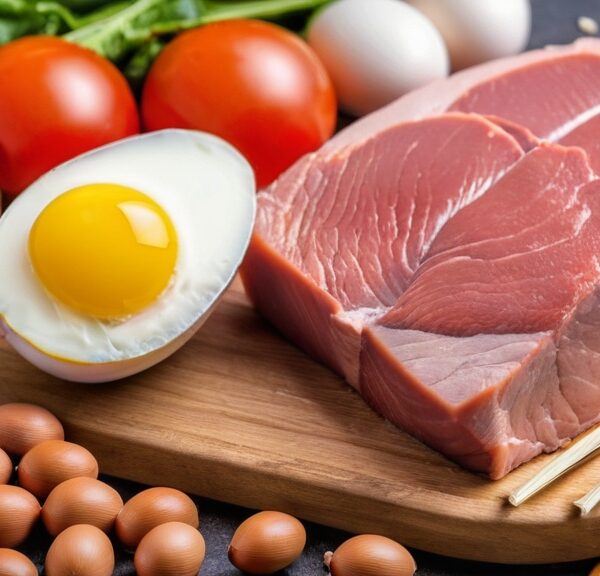Hydration plays a crucial role in recovery after physical exertion. Water helps transport nutrients, remove waste, and regulate body temperature. When you stay hydrated, your body functions optimally, promoting faster recovery.
Dehydration can lead to fatigue, muscle cramps, and decreased performance. Therefore, maintaining proper hydration levels is essential for anyone engaged in physical activity. Drinking enough water supports overall health and enhances recovery processes.
Key Takeaways
- Proper hydration is crucial for recovery after exercise and overall well-being.
- Electrolytes play a key role in hydration and maintaining fluid balance in the body.
- Signs of dehydration and electrolyte imbalance include fatigue, muscle cramps, and dizziness.
- Hydration strategies such as drinking water regularly and consuming electrolyte-rich foods can optimize recovery.
- Endurance athletes, strength trainers, and individuals recovering from illness or injury all benefit from prioritizing hydration and electrolyte balance for overall recovery.
Understanding Electrolytes and Their Role in Hydration
Electrolytes are minerals that carry an electric charge. They include sodium, potassium, calcium, and magnesium. These minerals help regulate various bodily functions, including fluid balance and muscle contractions.
When you sweat, you lose both water and electrolytes. Replenishing these minerals is vital for maintaining hydration and supporting recovery. Understanding their role can help you make informed choices about your hydration strategy.
Signs of Dehydration and Electrolyte Imbalance

Recognizing the signs of dehydration is essential for effective recovery. Common symptoms include thirst, dry mouth, fatigue, and dark urine. If you experience these signs, your body may need more fluids.
Electrolyte imbalances can also manifest through symptoms like muscle cramps, dizziness, and headaches. Paying attention to these signals can help you address hydration needs promptly. Ignoring them may hinder your recovery process.
Hydration Strategies for Optimal Recovery
To optimize recovery, develop a hydration strategy that works for you. Start by drinking water consistently throughout the day. Aim to consume fluids before, during, and after exercise to maintain hydration levels.
Incorporate hydrating foods into your diet as well. Fruits and vegetables like watermelon, cucumbers, and oranges provide both water and essential nutrients. This combination supports your overall hydration strategy effectively.
Electrolyte Sources for Replenishment
Replenishing electrolytes is crucial after intense workouts or sweating. Many foods naturally contain electrolytes. Bananas, spinach, and yogurt are excellent sources of potassium and calcium.
Sports drinks can also help replenish electrolytes quickly. However, be mindful of added sugars in some beverages. Choose options with lower sugar content to support your recovery without unnecessary calories.
The Link Between Hydration and Muscle Recovery

Hydration directly impacts muscle recovery after exercise. Water helps transport nutrients to muscle cells, promoting repair and growth. Staying hydrated can reduce soreness and improve overall performance.
Additionally, proper hydration supports joint lubrication. This reduces the risk of injury during workouts. By prioritizing hydration, you enhance your body’s ability to recover effectively.
Hydration and Electrolyte Balance for Endurance Athletes
Endurance athletes face unique hydration challenges due to prolonged activity. They often sweat more, leading to significant fluid and electrolyte loss. Maintaining balance is crucial for optimal performance and recovery.
Endurance athletes should monitor their hydration levels closely. Drinking water alone may not suffice; they need to replenish electrolytes as well. Incorporating electrolyte-rich drinks during long sessions can help maintain balance.
Hydration and Electrolyte Balance for Strength Training
Strength training also requires attention to hydration and electrolyte balance. Lifting weights causes muscle strain and fluid loss through sweat. Proper hydration supports muscle function and recovery after intense sessions.
Strength athletes should focus on pre- and post-workout hydration strategies. Drinking water before lifting helps prepare the body for exertion. After training, replenishing fluids and electrolytes aids in recovery.
Hydration and Electrolyte Balance for Recovery from Illness or Injury
Recovery from illness or injury demands special attention to hydration and electrolytes. Illness often leads to fluid loss through fever or vomiting. Staying hydrated supports the immune system and speeds up recovery.
Injuries can also cause inflammation and fluid imbalance in the body. Adequate hydration helps reduce swelling and promotes healing. Prioritizing fluids during recovery can significantly impact overall health.
Hydration and Electrolyte Balance for Mental and Cognitive Recovery
Hydration affects not only physical health but also mental performance. Dehydration can lead to fatigue, confusion, and decreased concentration. Staying hydrated supports cognitive function during recovery periods.
Electrolyte balance also plays a role in mental clarity. Sodium and potassium help transmit nerve signals effectively. Ensuring proper hydration can enhance focus and cognitive abilities during recovery.
Prioritizing Hydration and Electrolyte Balance for Overall Recovery
In conclusion, prioritizing hydration and electrolyte balance is vital for effective recovery. Whether you’re an athlete or recovering from illness, staying hydrated supports overall health. Understanding the importance of fluids can enhance your recovery process significantly.
Make hydration a daily habit by incorporating water-rich foods and beverages into your routine. Monitor your body’s signals to ensure you meet its needs effectively. By doing so, you will promote optimal recovery and overall well-being.
FAQs
What are electrolytes?
Electrolytes are minerals in your body that have an electric charge. They are essential for various bodily functions, including muscle contractions, nerve function, and maintaining fluid balance.
Why are electrolytes important for hydration and recovery?
Electrolytes play a crucial role in maintaining proper hydration levels in the body. They help regulate the balance of fluids inside and outside of cells, and they are lost through sweat during physical activity. Replenishing electrolytes is important for rehydration and recovery after exercise.
What are the main electrolytes in the body?
The main electrolytes in the body are sodium, potassium, chloride, calcium, magnesium, and phosphate. Each of these electrolytes plays a specific role in maintaining proper bodily function.
How can I replenish electrolytes after exercise?
You can replenish electrolytes by consuming foods and drinks that contain electrolytes, such as sports drinks, coconut water, bananas, and leafy greens. Additionally, electrolyte supplements are available for those who need a more concentrated source of electrolytes.
What are the signs of electrolyte imbalance?
Signs of electrolyte imbalance include muscle cramps, weakness, fatigue, irregular heartbeat, confusion, and nausea. It’s important to seek medical attention if you experience severe symptoms of electrolyte imbalance.
How much water should I drink to stay properly hydrated?
The amount of water needed for proper hydration varies from person to person, but a general guideline is to drink at least 8-10 cups of water per day. However, factors such as activity level, climate, and overall health can affect individual hydration needs.



